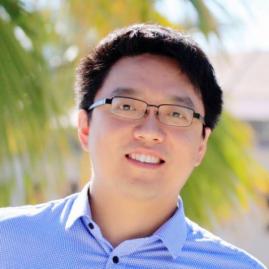
Dr. Lei Qi (Stanley) is Assistant Professor in the Department of Bioengineering (School of Engineering), Department of Chemical and Systems Biology (School of Medicine), and a core faculty member in Stanford ChEM-H Institute. He is one pioneer in the CRISPR technology development for genome engineering. He has developed the CRISPRi/a technologies for purposes beyond gene editing: gene regulation using CRISPR interference (CRISPRi, gene repression) and CRISPR activation (CRISPRa, gene activation), CRISPR dynamic imaging of chromatin in living cells, and CRISPRi/a high-throughput single or combinatorial genetic screens. He is also active in the field of Synthetic Biology and has developed synthetic noncoding RNAs for controlling transcription and translation. He obtained his Ph.D. in Bioengineering from the University of California Berkeley/UCSF in 2012. He joined UCSF as faculty fellow between 2012 to 2014, and joined the faculty at Stanford University since 2014. His lab currently is applying genetic engineering to rational cell design for understanding genomics and cell therapy.
Research
Our research laboratory focuses on the bioengineering of genetics and cells. We are interested in developing genetic engineering technologies and exploring discovery-based synthetic biology for diverse applications. We explore how the human genome as sophisticated gene and regulatory programs encode functions, and how to rationally design genetic circuits for new therapeutics. For technology development, we repurposed the bacteria Clustered Regularly InterSpaced Palindromic Repeats (CRISPR) system and developed the CRISPR interference (CRISPRi) technology as gene switches to activate or repress genes in the genome. We continue to synthesize and characterize macromolecules and study their use as new tools. For discovery-based synthetic biology, we aim to adopt synthetic biology for biological or biomedical discoveries. We are eager to understanding the design principles of the genome and cells, such that they can autonomously and accurately perform designed functions for killing cancers and regenerating tissues. We are seeking methods to better engineer human immune cells so they can precisely sense the environment signals. By engineering at multiple scales from molecular to cellular to organismal levels, we hope to make engineering as a fundamental discovery approach.
For more information please visit http://med.stanford.edu/qilab.html
